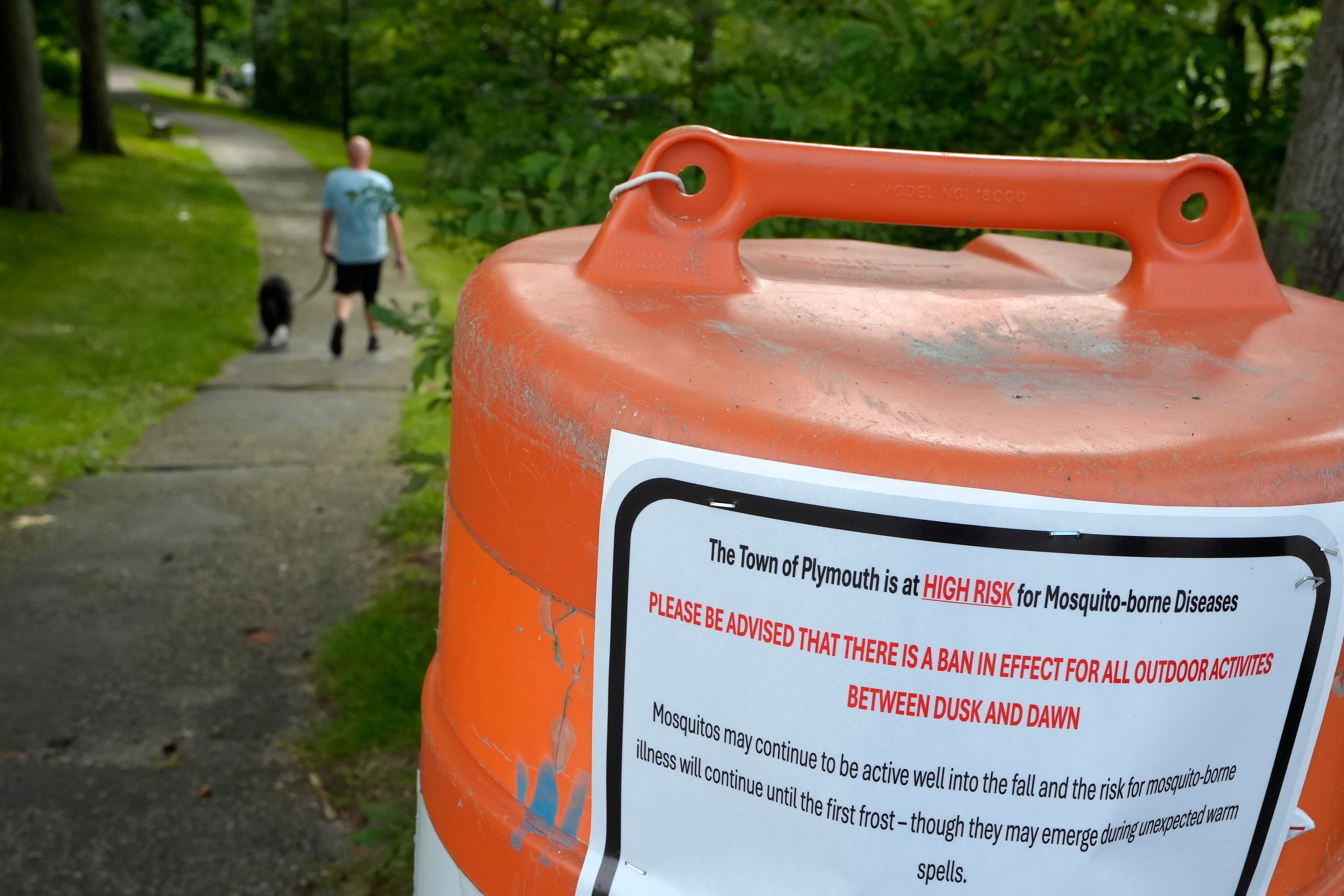Second case of deadly mosquito-borne virus detected in Massachusetts as county closes parks and fields
The mosquito-borne virus infected a woman in her thirties

Your support helps us to tell the story
From reproductive rights to climate change to Big Tech, The Independent is on the ground when the story is developing. Whether it's investigating the financials of Elon Musk's pro-Trump PAC or producing our latest documentary, 'The A Word', which shines a light on the American women fighting for reproductive rights, we know how important it is to parse out the facts from the messaging.
At such a critical moment in US history, we need reporters on the ground. Your donation allows us to keep sending journalists to speak to both sides of the story.
The Independent is trusted by Americans across the entire political spectrum. And unlike many other quality news outlets, we choose not to lock Americans out of our reporting and analysis with paywalls. We believe quality journalism should be available to everyone, paid for by those who can afford it.
Your support makes all the difference.Massachusetts reported its second confirmed case of the rare but potentially deadly Eastern Equine Encephalitis virus on Thursday.
The individual was identified as a woman in her thirties, who had been exposed in an area of Plymouth County that was aerially sprayed with insecticide on Tuesday night. She was infected before spraying in the community had been completed.
The department did not say anything about the woman’s current condition, but assured that there have been no changes in the area’s risk level, currently determined to be high.
A horse in the same area was also exposed: the second confirmed case in a Massachusetts horse this year.

“This evidence of the spread of EEE to a person and a horse in Plymouth County before aerial spraying confirms risk in the area,” Public Health Commissioner Dr. Robbie Goldstein said in a release.
“We expect that the aerial spraying will help prevent risk for EEE from continuing to escalate in the area, but it does not eliminate it completely. We are asking people to be consistent about taking steps to prevent mosquito bites.”
The Town of Plymouth recently closed public parks and fields from dusk until dawn, peak biting times for many mosquitoes.
The state’s first human case of the virus was reported on August 16. The individual was identified as a man in his 80s who had been hospitalized after being exposed to the virus in Worcester County. The department declined to provide further details on the case due to patient privacy.
Vermont health officials also reported a virus case in a Chittenden County man in his 40s, who was hospitalized in July and left the hospital a week later. The man was not identified.
In New Hampshire, 41-year-old Hampstead resident Steven Perry died after contracting the virus. He was the state’s first case of Eastern Equine Encephalitis in a decade. His family told Boston 25 News this week that he had no underlying medical conditions and that they did not know where he had contracted the virus.

Although a tally from the Centers for Disease Control and Prevention still only shows four cases on its website, this news brings the total number of reported cases to six. Other cases were identified in Wisconsin and New Jersey.
Spread through the bite of infected mosquitoes, approximately 30 percent of those who are infected die, and survivors are often left with neurological problems. There are currently no vaccines or medicines to treat or prevent the disease, which affects people of all ages.
Concern about Eastern Equine Encephalitis also comes amid concerns over the spread of West Nile virus, which has been confirmed in more than half of U.S. states this year, according to the CDC.
Yesterday, Illinois and Wisconsin reported their first deaths from West Nile virus, including two in the Badger State. A Missouri teenager was left paralyzed and on a ventilator after contracting West Nile, according to a report from NBC News.
Join our commenting forum
Join thought-provoking conversations, follow other Independent readers and see their replies
Comments